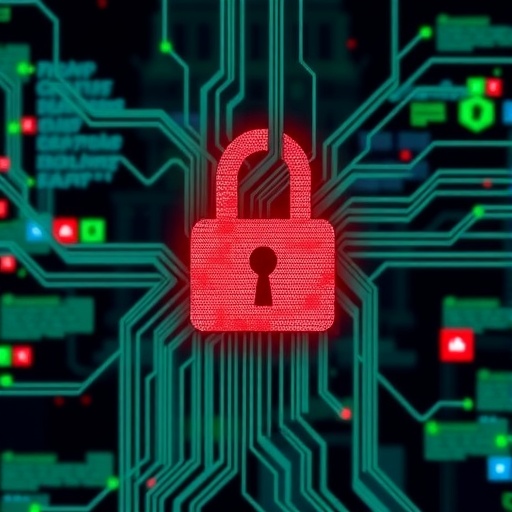In an age where cyber threats loom larger than ever, the balance between security and privacy in accessing online accounts has become paramount. Cornell Tech researchers have made significant strides in addressing these concerns with a revolutionary system known as Client-Side Encrypted Access Logging (CSAL). This innovative solution offers users a way to detect unauthorized access to their online accounts while ensuring their personal and device data remain protected from invasive tracking by external web services.
The alarming frequency of account compromise incidents highlights the growing need for advanced security measures. Many of the existing systems employed by major platforms such as Google and Facebook rely heavily on client-side data for verification purposes. Unfortunately, these methods, which typically utilize device identifiers and IP addresses, are inherently flawed due to their vulnerability to spoofing by skilled attackers. The implications of this vulnerability can be dire, especially for individuals in high-risk professions—journalists, activists, and public figures—who must navigate a precarious landscape of digital threats daily.
The research team, led by Carolina Ortega Pérez and Alaa Daffalla, both Ph.D. candidates at Cornell Tech, alongside Thomas Ristenpart, a prominent professor of computer science, has articulated a novel approach to tackle these critical issues. Their findings reveal that the traditional access logs, which may falsely suggest a login was from a familiar device, often provide a misleading sense of security to users. This deceptive reliability presents a foundational risk, as it can lead individuals to underestimate the actual threat level posed to their accounts.
CSAL introduces a cryptographic framework that fundamentally redefines how access logs are generated and utilized. In lieu of transmitting potentially compromising client-side data to service providers, the system employs an end-to-end encryption method tailored exclusively for client devices. By generating a cryptographic token that includes device identifiers, CSAL ensures that this information remains exclusively in the possession of the user. The result is a secure layer that empowers users to independently verify the origin of their logins without inadvertently leaking sensitive data to the platforms they utilize.
Key to understanding CSAL’s significance is the emphasis on user control. By encrypting sensitive information and allowing only the user to decrypt and verify login history, the system minimizes the risk of exposure to tracking and other invasive data collection practices commonly employed by tech giants. This user-centric approach not only fortifies individual accounts against unauthorized access but also challenges the status quo of how web services collect and manage data.
The implications of this research extend beyond the realms of cybersecurity and data protection; they resonate deeply with societal issues surrounding privacy, individual rights, and the ethical considerations of technology use. For individuals in vulnerable positions, knowledge of unauthorized access to personal accounts could not only safeguard their digital identity but also contribute significantly to their physical safety. In this sense, tools like CSAL become not just technological advancements but essential instruments of empowerment in an increasingly perilous digital landscape.
Moreover, the research findings underscore the necessity for continuous innovation within this field. As cyber threats evolve, so too must the solutions designed to combat them. The work accomplished by Ortega Pérez, Daffalla, and Ristenpart lays a foundation for further exploration and advancement in cybersecurity measures that prioritize user privacy without sacrificing protection. It challenges both researchers and industry leaders to reimagine the future of online security, focusing on methodologies that maintain integrity while promoting user agency.
The potential for wide-ranging impact from CSAL cannot be overstated. As more users become aware of the vulnerabilities associated with traditional access logging practices, the pressure mounts for tech platforms to adopt enhanced security measures. This system could facilitate the kind of accountability required to instill confidence among users, bolstering trust in digital interactions. As journalists, activists, and others navigate complex and often hostile environments, innovations like CSAL provide crucial support in safeguarding their online presences.
In conclusion, the work undertaken by the Cornell Tech research team signifies a pivotal advance in the ongoing battle against cyber threats. The introduction of Client-Side Encrypted Access Logging not only addresses significant security flaws but also prioritizes user privacy in an era marked by relentless data harvesting. As digital landscapes evolve, the lessons learned from this research offer valuable insights into creating more secure and private online environments. For those at the intersection of technology and societal issues, this development marks a crucial turning point—a possibility that insists on redefining the conversation around cybersecurity in favor of empowerment, protection, and accountability.
By rethinking the very framework of how access logs are created and managed, CSAL emerges as a beacon for future innovations in digital account security. The responses from the wider tech community will undoubtedly shape the trajectory of this promising technology, propelling it from conceptual research into practical application. As we embrace the complex challenges of our digital age, solutions like CSAL illuminate a path towards a safer and more private internet experience for all users.
Subject of Research: Client-Side Encrypted Access Logging (CSAL)
Article Title: Cornell Tech Researchers Develop Groundbreaking System for Secure Online Account Access
News Publication Date: October 2023
Web References: USENIX Security Symposium
References: None
Image Credits: None
Keywords
Cybersecurity, Computer Science, Privacy Protection, Digital Safety, Encryption Technology
Tags: advanced online security solutionsClient-Side Encrypted Access LoggingCornell Tech cybersecurity advancementscyber threats and vulnerabilitiesdetecting unauthorized access to accountsdigital privacy and security balanceimpact of hacking on high-risk professionsinnovative cybersecurity researchonline account security measuresprotecting sensitive information onlinesafeguarding personal data from trackinguser privacy protection technologies





